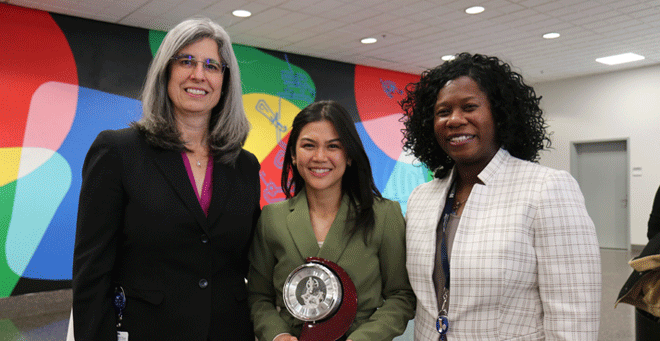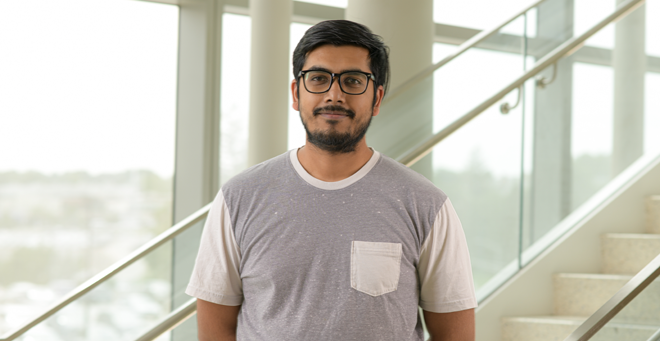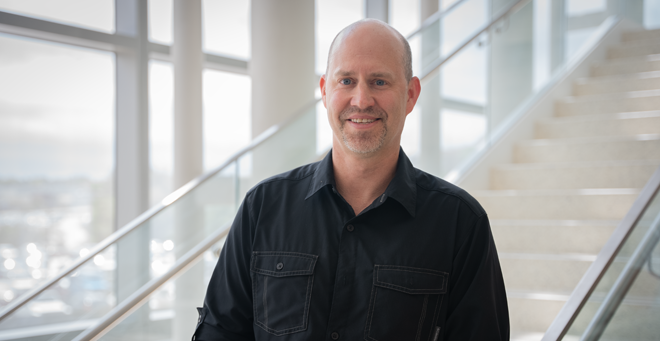More than 100 UMass Chan Medical School students, faculty, staff and alumni gathered to hear nine students explain their thesis work in three minutes or less on Friday, March 22. The prize: a silver clock trophy, an all-expense-paid trip to a conference of the winner’s choosing and the right to represent UMass Chan in the regional competition online in April.
Contestants, including MD/PhD and PhD students and candidates, covered topics such as understanding how neurons change as they age, the progression of amyotrophic lateral sclerosis and how the body responds to bacteria in raw cookie dough. PhD student Najihah Aziz earned first prize and clinched the audience vote (the People’s Choice Award) with her presentation, “Fat is not a foe, but a future cure,” on how brown fat could be used to treat diabetes.
“I told all my friends and my family that if I don’t pass out, I’m already winning,” joked Aziz, whose family lives in Malaysia. “This experience helped me think about how to present my science to a nonscientific community and also a scientific community that’s not in my field. This was a very challenging thing to do. To simplify it without dumbing it down was very good practice for me.”
The Three Minute Thesis originated at the University of Queensland in Australia during a drought when people were using egg timers to take three-minute showers. The then-dean of the graduate school, Alan Lawson, PhD, applied the timed element to thesis work and launched the initiative in 2008. Today there are more than 600 universities and institutions in more than 65 countries that host competitions.

Funmi Ayobami, PhD, associate dean for student success and engagement for the Morningside Graduate School of Biomedical Sciences, brought the competition to UMass Chan.
“We really want to celebrate the students doing incredible work. They’re grinding in the lab and they’re not always able to look up and say, ‘Hey, I’m doing great work!’ This is an opportunity to highlight research that may not get the chance to be broadly disseminated,” said Dr. Ayobami, who learned about the competition while in graduate school at Cornell University.
Emily Green, PhD, associate professor of psychiatry and associate vice provost for faculty development, helps faculty members refine their work prior to presenting at conferences and was one of the judges who trimmed the field to nine.
“I love the idea of an event like this focusing on the undervalued skill of scientific communication,” said Dr. Green. “It’s vulnerable to communicate something that means so much to you.”
“The different audiences that one communicates with as a scientist really varies,” added Ayobami. “When thinking about COVID-19 and the misinformation and distrust that surrounded the scientific community, I wonder how that could’ve been changed or if there was a way that scientists and medical professionals could have communicated the science more effectively for the public. The Three Minute Thesis competition has direct implications for medicine.”
Prizes were funded by generous donations made by Morningside Graduate School of Biomedical Sciences alumni. All five judges of the live competition were alumni as well. MD/PhD student Ayush Kumar received a $500 career development award as runner-up for his discussion “A Journey to Being Cancer-Free: Radiation Therapy in Triple Negative Breast Cancer.”

